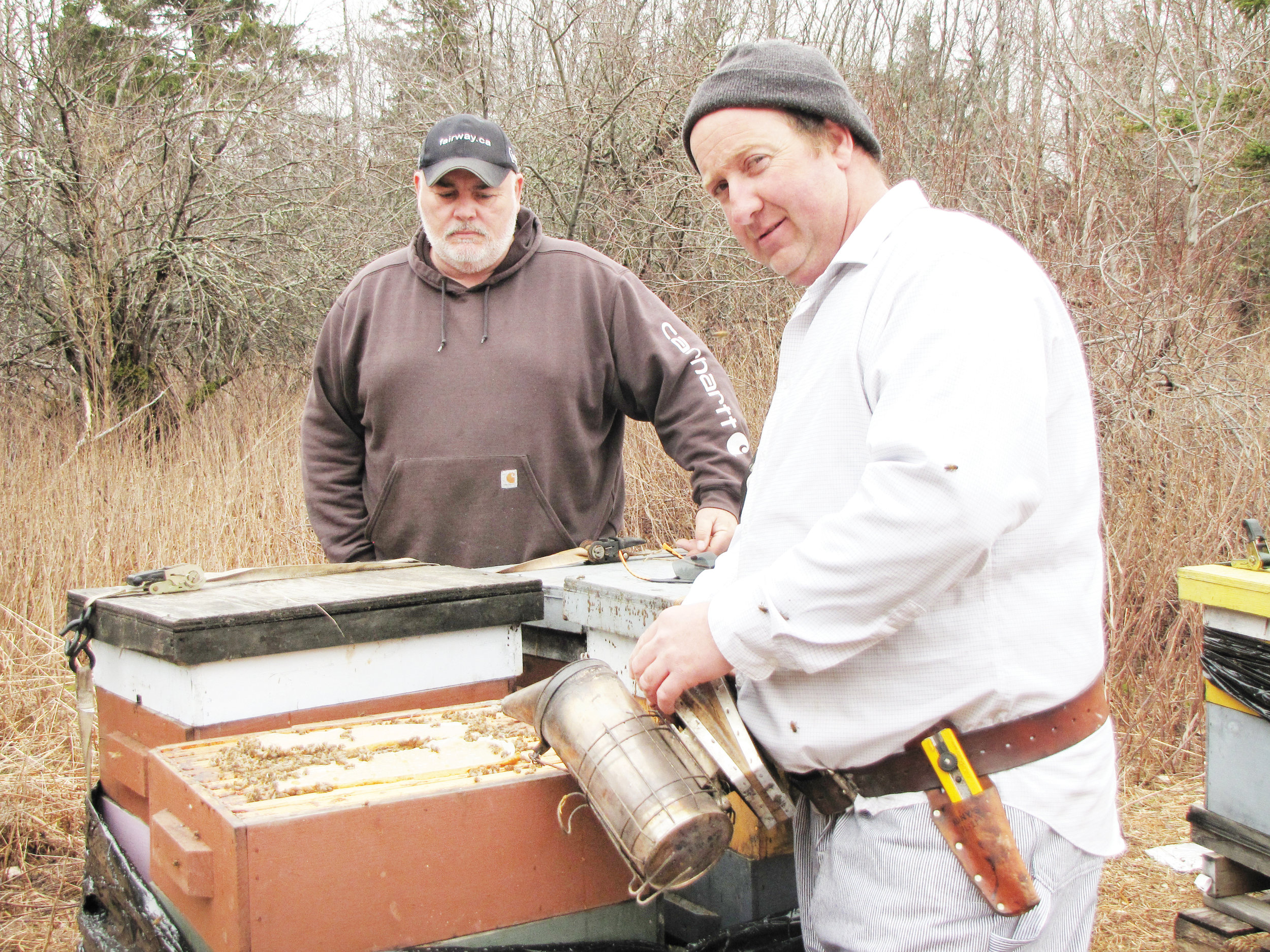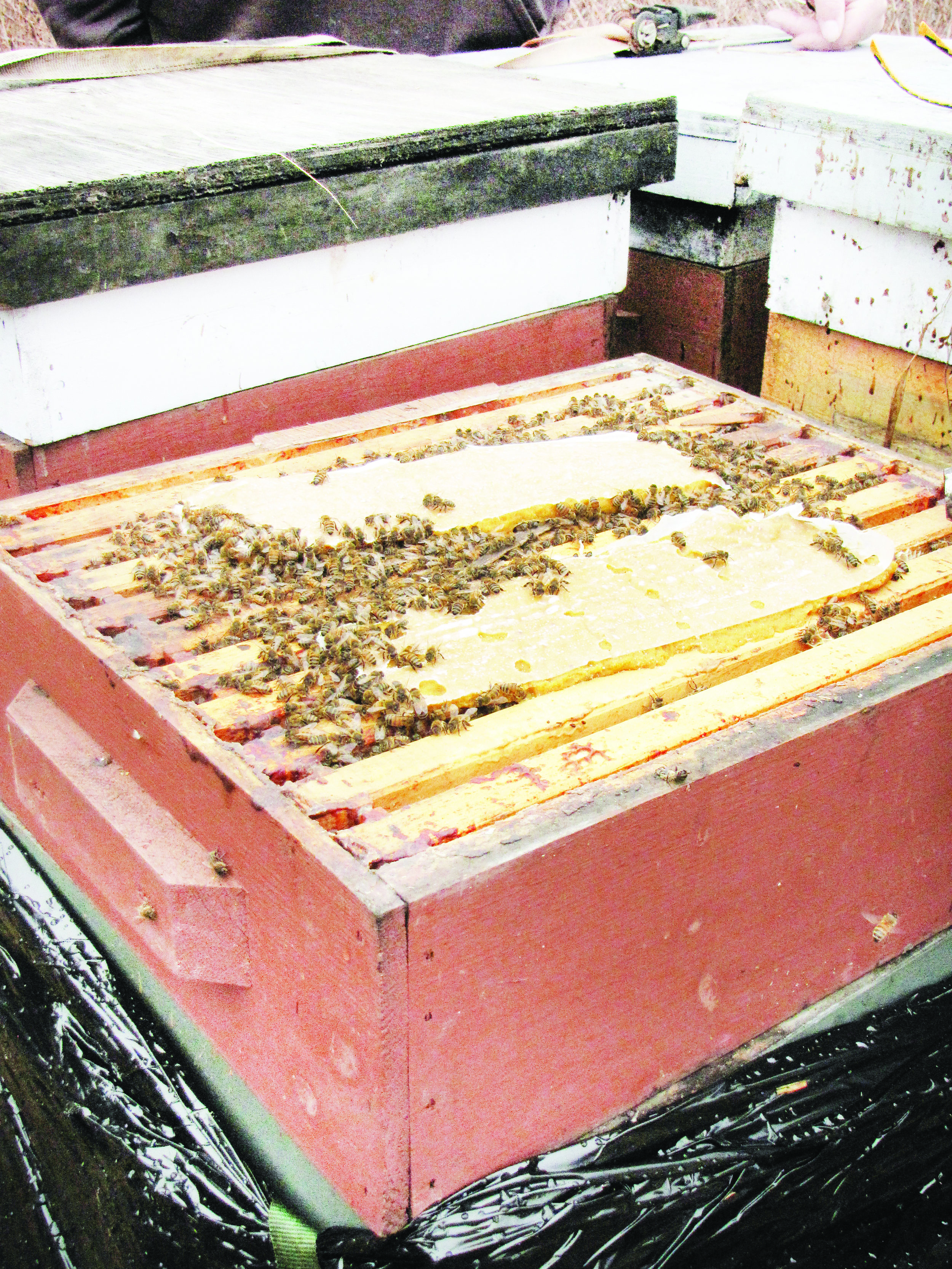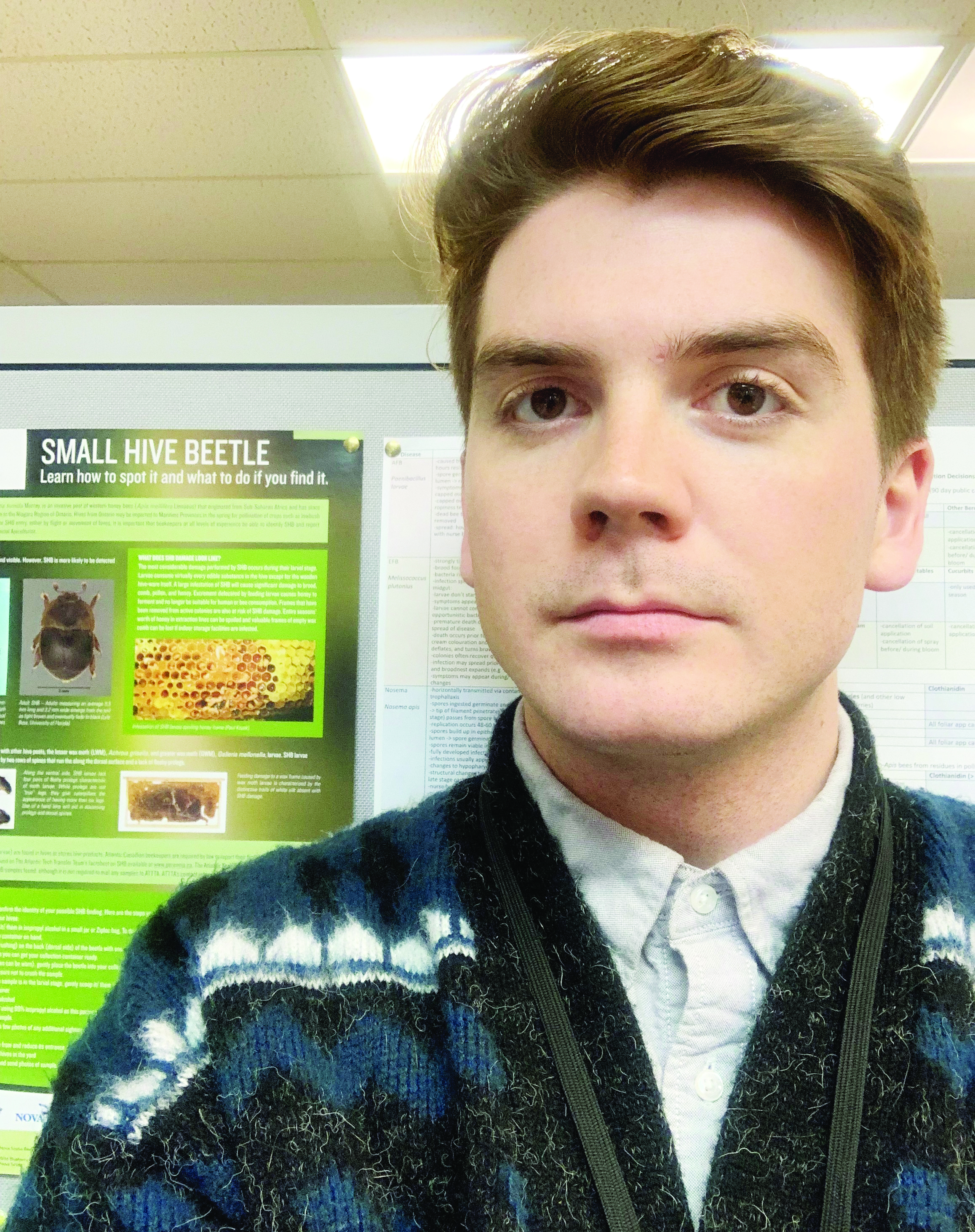P.E.I. beekeepers worry about a Small hive beetle infestation
/by Kathy Birt
Some P.E.I. beekeepers claim that a Small hive beetle infestation on the Island would force them to burn all their hives and result in them losing all the honey from those hives.
In a recent interview, Roger O’Neill, president of the P.E.I. Beekeepers Association, said all honey would have to be immediately extracted to save it, but with no Island beekeepers having freezer facilities to store the honey, it would ultimately be lost.
Kevin McKenna of Iona, who considers himself a small-time beekeeper with just 108 hives, reiterated O’Neill’s comments.
“The Small hive beetle turns honey into slime and bees die unless they can vacate immediately,” said McKenna, adding that the pest multiplies quickly. “The honey is slop running out of the hives.” McKenna harvests 25 to 50 acres of blueberries per year, and is self-sufficient in terms of pollination, harvesting, and sales. “I sell my honey and blueberries from the farm gate,” he said.
O’Neill would have more to lose if the Small hive beetle hit P.E.I. He has more than 1,500 hives, and has markets for his Island Gold Honey locally, regionally, nationally, and internationally. But both men share a concern when hives are imported from Ontario for pollination, as they were last year.
Two large blueberry processors – Oxford Frozen Foods and Wyman’s – are the main importers of hives for pollination in the province.
BEEHIVE INSPECTIONS
Last year, 1,800 hives came in from Ontario and all were inspected. But O’Neill and McKenna claim that number could double this year and they fear thorough inspections may not be conducted.
Cameron Menzies, who works as a berry crop development officer and the provincial apiarist for P.E.I., said in late April that the number of hives needed this year had not been determined.
“No permits have been issued yet to import to P.E.I.,” said Menzies at the time. “A lot of boxes have to be checked off with our inspection report from Ontario inspectors.” He added that 60 percent of imports have to be inspected by Ontario inspectors. “In addition, our inspectors travel to Ontario to inspect a minimal 10 percent,” he said.
McKenna still has concerns. “It’s the pollen patties that attract the Small hive beetle,” he said. “The beetle does not like the light, so tends to hide when the hive is opened. So, if an inspector is doing top inspections, the beetle could be missed.”
According to Menzies, the Small hive beetle is not native to North America, but originates in Africa. “A member of the Sap beetle family, it has established a breeding population in the Niagara region of Ontario in recent years,” he said, noting that there were small numbers in New Brunswick about a decade ago. The beetle larvae consume pollen, wax, and honey, and defecate in the honey.
As the provincial apiarist, Menzies works at being on top of this issue. “The beetle first appeared in Essex County (in southwestern Ontario) from Michigan,” he said. “Essex was under quarantine. It then appeared in the Niagara region, but that was never put under quarantine. There is a line that starts in Mississauga and runs along the 401 to 402 (highways) to the U.S. border. It is well below the line where the Small hive beetle is.”
Menzies said any Ontario beekeeper who has the Small hive beetle must report it to the government. “All that information is shared with my office,” he said. “If hives come in (to P.E.I.) this year, they will be taken from areas well away from areas that have (the) beetle.” He added that the quarantine zone in Ontario was lifted about a decade ago, a worry for O’Neill and McKenna.
“So, any hives infected with the Small hive beetle can move throughout the province,” said O’Neill.
There are more than 13,000 acres of wild blueberries on P.E.I., with about 6,000 acres harvested each year.
EXPANSION PROGRAM
Last April, the P.E.I. government announced a pollination expansion program, starting with $150,000 to help beekeepers purchase hives to get the Island closer to blueberry pollination self-sufficiency. The program’s ultimate goal is to eliminate the need to import hives to the Island.
“The purpose of the expansion funds is to eventually provide our own pollination without having to bring in bees from Ontario,” said Menzies.
The two beekeepers, though, look at not only the risk of Small hive beetle entering the province but the revenue that is lost to P.E.I. when Ontario hives are brought in for pollination. “At $150 a hive they pay Ontario beekeepers, that money leaves the province,” said O’Neill.
Nevertheless, both beekeepers confirm that all their hives were rented out last year.
As for this pollination season, Menzies suggested that hives will have to be brought in from Ontario again.
“There were about 6,500 hives going into winter,” said Menzies. “I doubt there is that many after numbers for winter losses are in. And there are some beekeepers who don’t rent out. When we look at the 6,000 acres of blueberries – maybe even 6,500 – that need pollination, the standard is to allow for one hive per acre to get a good yield. But more than one hive per acre will get a better yield. So, looking at those numbers, there will be a need to bring in hives.”
Menzies added that the big outfits growing and processing blueberries “do have to remain profitable.”
With that in mind and the actual number of imports needed for 2019 up in the air, Menzies spoke to reassure P.E.I. beekeepers.
“We work closely with the Ontario government to have all information and make decisions according to protocol,” he said. “If there is an arbitrary number (of beetles) and we judge the risk to be low, the acceptance is 10 percent. There is no amount of inspection, no amount of protocol that can eliminate the risk completely. We reduce the risk as much as we can.”










